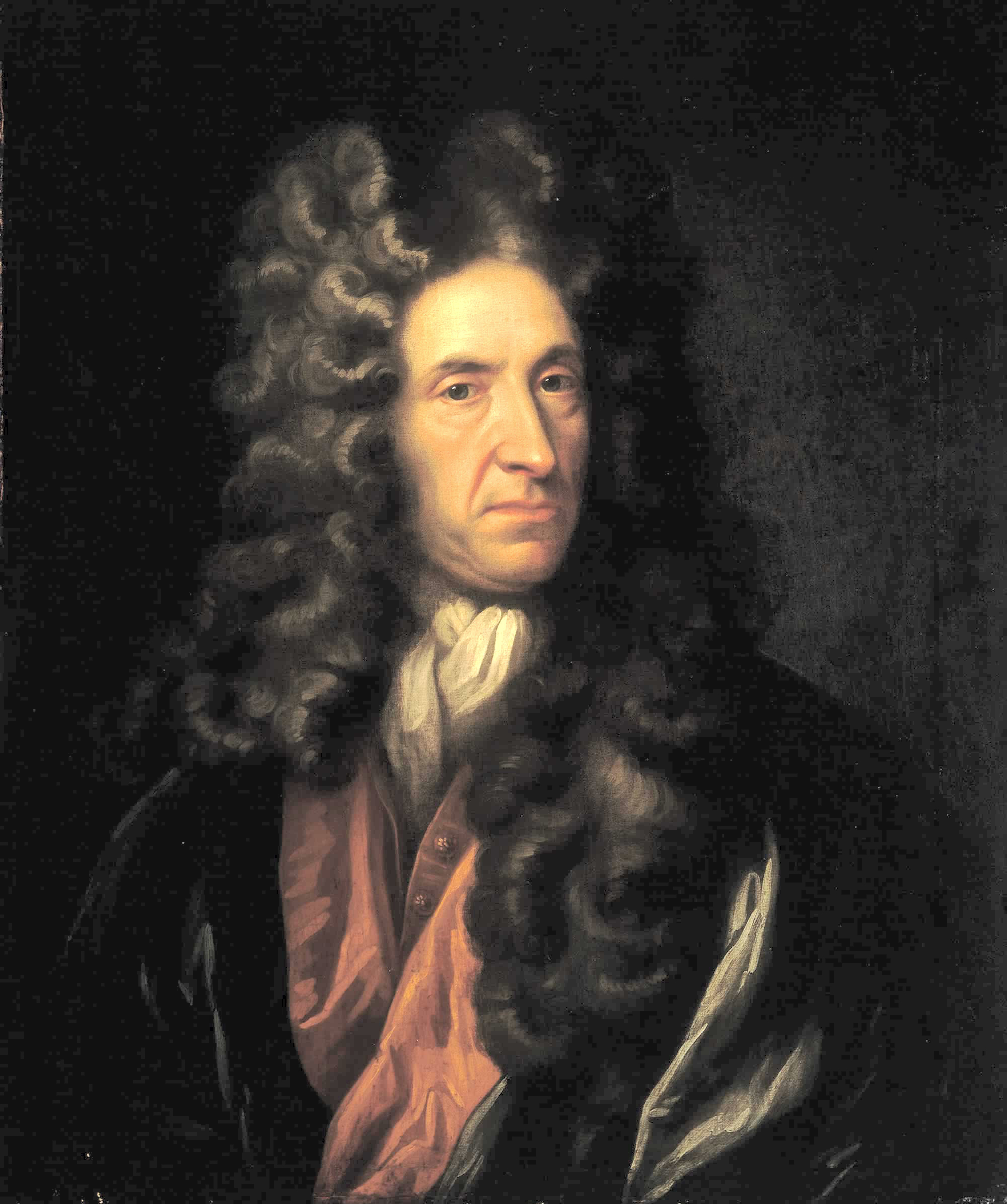Obras

Moll Flanders
Daniel DefoeLa vie et les aventures de Robinson Crusoe
Daniel DefoeFrases célebres de Daniel Defoe
Frases de hombres de Daniel Defoe
Frases de vida de Daniel Defoe
Robinson Crusoe
Fuente: Citado en Gázquez, Francisco. El libro de las crisis. Sabiduría perenne para náufragos. Editorial Corona Borealis, 2015. ISBN 9788492635214, p. 5.
Robinson Crusoe
Daniel Defoe Frases y Citas
Robinson Crusoe
“Cuando más grande es vuestra gloria, más cerca estáis de vuestra declinación.”
Fuente: Palomo Triguero, Eduardo. Cita-logía. Editorial Punto Rojo Libros, S.L. ISBN 978-84-16068-10-4, p. 141.
Robinson Crusoe
“Nunca es demasiado tarde para ser sabio.”
Fuente (en inglés): La vida y aventuras de Robinson Crusoe (The Life and Adventures of Robinson Crusoe). Daniel Defoe. Editorial W. Baynes and son; York, Wilson and sons, 1824. Página 161. https://books.google.es/books?id=k_LPAAAAMAAJ&pg=PA161&dq=It+is+never+too+late+to+be+wise.&hl=es&sa=X&ved=0ahUKEwjd4qinwafgAhUu2eAKHSrdBwwQ6AEIUTAF#v=onepage&q=It%20is%20never%20too%20late%20to%20be%20wise.&f=false
Robinson Crusoe
Original: «It is never too late to be wise».
Fuente (en inglés): La vida y aventuras de Robinson Crusoe (The Life and Adventures of Robinson Crusoe). Daniel Defoe. Editorial W. Baynes and son; York, Wilson and sons, 1824. Página 147. https://books.google.es/books?id=k_LPAAAAMAAJ&pg=PA161&dq=It+is+never+too+late+to+be+wise.&hl=es&sa=X&ved=0ahUKEwjd4qinwafgAhUu2eAKHSrdBwwQ6AEIUTAF#v=onepage&q=Thus%20fear%20of%20danger%20is%20ten%20thousand%20times%20more%20terrifying%20than%20danger%20itself&f=false
Robinson Crusoe
Original: «Thus fear of danger is ten thousand times more terrifying than danger itself when apparent to the eyes».
Fuente (en inglés): La vida y aventuras de Robinson Crusoe (The Life and Adventures of Robinson Crusoe). Daniel Defoe. Editorial W. Baynes and son; York, Wilson and sons, 1824. Página 121. https://books.google.es/books?id=k_LPAAAAMAAJ&pg=PA161&dq=It+is+never+too+late+to+be+wise.&hl=es&sa=X&ved=0ahUKEwjd4qinwafgAhUu2eAKHSrdBwwQ6AEIUTAF#v=onepage&q=Those%20people%20cannot%20enjoy%20comfortably%20what%20God%20has%20given%20them%20because%20they%20see%20and%20covet%20what%20He%20has%20not%20given%20them.%20All%20of%20our%20discontents%20for%20what%20we%20want%20appear%20to%20me%20to%20spring%20from%20want%20of%20thankfulness%20for%20what%20we%20have&f=false
Robinson Crusoe
Original: «Those people cannot enjoy comfortably what God has given them because they see and covet what He has not given them. All of our discontents for what we want appear to me to spring from want of thankfulness for what we have».
“Estoy dando cuenta de lo que fue, no de lo que debería o no debería ser.”
Fuente (en inglés): Moll Flanders: And History of the Devil. Volumen 3 de His Novels and miscellaneous works. Daniel Defoe. Editorial Bell and Daldy, 1871. Página 76. https://books.google.es/books?id=aLhEAAAAYAAJ&pg=PA20&dq=I+saw+the+Cloud,+though+I+did+not+foresee+the+Storm&hl=es&sa=X&ved=0ahUKEwjPrcWbyKfgAhW5AWMBHcuJCL8Q6AEIRjAE#v=onepage&q=I%20am%20giving%20an%20account%20of%20what%20was%2C%20not%20of%20what%20ought%20or%20ought%20not%20to%20be&f=false
Moll Flanders: And History of the Devil
Original: «I am giving an account of what was, not of what ought or ought not to be».
“Vi la nube, aunque no preví la tormenta.”
Fuente (en inglés): Moll Flanders: And History of the Devil. Volumen 3 de His Novels and miscellaneous works. Daniel Defoe. Editorial Bell and Daldy, 1871. Página 20. https://books.google.es/books?id=aLhEAAAAYAAJ&pg=PA20&dq=I+saw+the+Cloud,+though+I+did+not+foresee+the+Storm&hl=es&sa=X&ved=0ahUKEwjPrcWbyKfgAhW5AWMBHcuJCL8Q6AEIRjAE#v=onepage&q=I%20saw%20the%20Cloud%2C%20though%20I%20did%20not%20foresee%20the%20Storm&f=false
Moll Flanders: And History of the Devil
Original: «I saw the Cloud, though I did not foresee the Storm».
Fuente (en inglés): Una apelación al honor y la justicia, aunque sea de sus peores enemigos (An Appeal to Honour and Justice, Though It Be of His Worst Enemies). Daniel Defoe. Editorial Litres, 2017. ISBN 9785040517947. https://books.google.es/books?id=M4ikDgAAQBAJ&pg=PT3&dq=I+hear+much+of+people%27s+calling+out+to+punish+the+guilty,+but+very+few+are+concerned+to+clear+the+innocent&hl=es&sa=X&ved=0ahUKEwjXg6mUy6fgAhXu1-AKHXFGD7wQ6AEIMDAB#v=onepage&q=I%20hear%20much%20of%20people's%20calling%20out%20to%20punish%20the%20guilty%2C%20but%20very%20few%20are%20concerned%20to%20clear%20the%20innocent&f=false
Original: «I hear much of people's calling out to punish the guilty, but very few are concerned to clear the innocent».
Original: «The soul is placed in the body like a rough diamond, and must be polished, or the luster of it will never appear».
Fuente: The Oxford Dictionary of Quotations. Autores Oxford University Press, TME. Editores Elizabeth M. Knowles, Angela Partington. Colaboradora Elizabeth M. Knowles. Edición revisada. Editorial Oxford University Press, 1999. ISBN 9780198601739, p. 254. https://books.google.es/books?id=o6rFno1ffQoC&pg=PP274&dq=The+soul+is+placed+in+the+body+like+a+rough+diamond,+and+must+be+polished,+or+the+luster+of+it+will+never+appear&hl=es&sa=X&ved=0ahUKEwiJq_-JwqfgAhXjA2MBHYGsAogQ6AEIKDAA#v=onepage&q=The%20soul%20is%20placed%20in%20the%20body%20like%20a%20rough%20diamond%2C%20and%20must%20be%20polished%2C%20or%20the%20luster%20of%20it%20will%20never%20appear&f=false
Daniel Defoe: Frases en inglés
“From this amphibious ill-born mob began
That vain, ill-natured thing, an Englishman.”
Pt. I, l. 132.
The True-Born Englishman http://www.luminarium.org/editions/trueborn.htm (1701)
“It is never too late to be wise.”
Fuente: Robinson Crusoe (1719), Ch. 12, A Cave Retreat.
The Education of Women (1719)
“Fear of danger is ten thousand times more terrifying than danger itself.”
Variante: Fear of danger is ten thousand times more terrifying than danger itself.
Fuente: Robinson Crusoe (1719), Ch. 11, Finds Print of Man's Foot on the Sand.
“I saw the Cloud, though I did not foresee the Storm.”
Fuente: Moll Flanders
“Great families of yesterday we show,
And lords whose parents were the Lord knows who.”
Pt. I, l. 374.
The True-Born Englishman http://www.luminarium.org/editions/trueborn.htm (1701)
The Life and Adventures of http://books.google.com/books?id=IZ9CAAAAYAAJ&q=%22better+to+have+a+Lyon+at+the+Head%22+%22an+Army+of+Sheep+than+a+Sheep+at+the+Head%22+%22an+Army+of+Lyons%22&pg=PA33#v=onepage Mrs. Christian Davies (1741)
Fuente: Robinson Crusoe (1719), Ch. 9, A Boat.
Contexto: I learned to look more upon the bright side of my condition, and less upon the dark side, and to consider what I enjoyed rather than what I wanted; and this gave me sometimes such secret comforts, that I cannot express them; and which I take notice of here, to put those discontented people in mind of it, who cannot enjoy comfortably what God has given them, because they see and covet something that He has not given them. All our discontents about what we want appeared to me to spring from the want of thankfulness for what we have.
Fuente: Robinson Crusoe (1719), Ch. 10, Tames Goats.
“Redemption from sin is greater then redemption from affliction.”
Fuente: Robinson Crusoe
Fuente: Robinson Crusoe (1719), Ch. 6, Ill and Conscience-stricken.
“I am giving an account of what was, not of what ought or ought not to be.”
Fuente: Moll Flanders
“For sudden Joys, like Griefs, confound at first.”
Fuente: Robinson Crusoe
Pt. I, l. 360-363.
The True-Born Englishman http://www.luminarium.org/editions/trueborn.htm (1701)
First appears in Ch. 14, A Dream Realized.
Robinson Crusoe (1719)
“And of all plagues with which mankind are cursed,
Ecclesiastic tyranny's the worst.”
Pt. II, l. 299.
The True-Born Englishman http://www.luminarium.org/editions/trueborn.htm (1701)
Pt. I, l. 1. Compare: "Where God hath a temple, the Devil will have a chapel", Robert Burton, Anatomy of Melancholy, part iii, section 4, Memb. 1, Subsect. 1.
The True-Born Englishman http://www.luminarium.org/editions/trueborn.htm (1701)
Fuente: Robinson Crusoe (1719), Ch. 1, Start in Life.
“The best of men cannot suspend their fate:
The good die early, and the bad die late.”
Character of the Late Dr. S. Annesley (1715).
The Education of Women (1719)
The Shortest Way with the Dissenters (1702).
